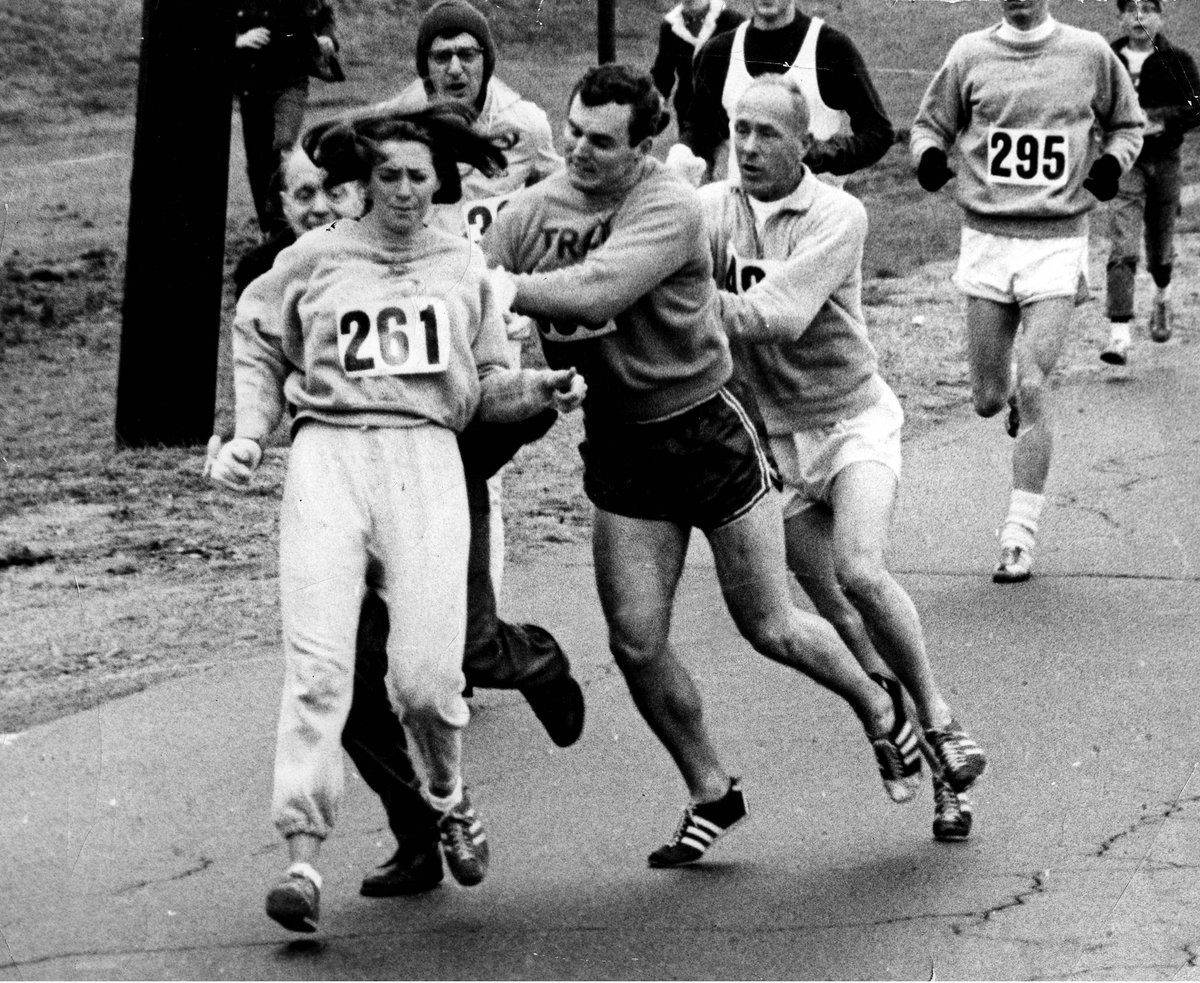

Photographs of the attack which have travelled around the world were some of the most galvanising images of the women’s rights movement, she says. “An official that tried to throw me out of the race you would think I would hate for the rest of my life, and in fact he and I became very, very good friends and people say ‘well how could that be?’ and it’s because he took the worst thing in my life and it became the best thing in my life. “I said oh my god this is the place! And I blew Jock Semple’s ghost – Jock Semple was the official who tried to throw me out of the race – I blew him a kiss. You can imagine what that kind of money can do now to activate the programmes that we’ve always dreamed of and reach women who have been pretty inaccessible to us.”ĭuring the race Switzer says she took a moment to remember the official who attacked her all those years ago. Switzer was joined by 125 other runners in fundraising for 261 Fearless, which they managed to raise $845,000 for. “Give them a chance to experience empowerment by simply outing one foot in front of the other.” The race was also a spring forward for raising funds through 261 Fearless for women running around the world. She says the Boston Marathon is a microcosm of the social revolution that’s taking place around the world. “And also 58 percent of all the runners in the United States are now women.” “Today was a look back at 50 years, at a time when an official tried to throw me out of the race simply because I was a girl wearing a bib number, to the fact that now there are almost 50:50 (male to female) in this very difficult race. Switzer says when she competed in the race 50 years ago it drew attention to the inequality and lack of opportunities for women in sport. Her finishing time means she qualifies to enter into the race again. “So I just dialled back, walked through all the water stations, I did eight interviews along the course, took it easy and then rolled it down Boylston Street to the finish and I surprised myself with a good time so maybe I’m in a lot better condition than I thought.” Switzer says going in to the race she didn’t know what to expect. “I was busy doing interviews and getting not very much sleep.” “Because the story is so compelling it seems to have taken on a life of its own, which is really great for my foundation 261 Fearless. She was absolutely exhausted going in to the race as she had been flat out with media interviews.

Speaking to Lynn Freeman from Boston, Switzer says it was an exciting time.

Today she's joined by 125 other runners from around the world raising money under the banner 261 Fearless, her organisation enabling women to take part in non-competitive running. Switzer was told no woman could ever run the Boston Marathon, and was man-handled for doing so back in 1967. Listen to Kathrine Switzer talk to Lynn Freeman after completing the Boston Marathon


 0 kommentar(er)
0 kommentar(er)
